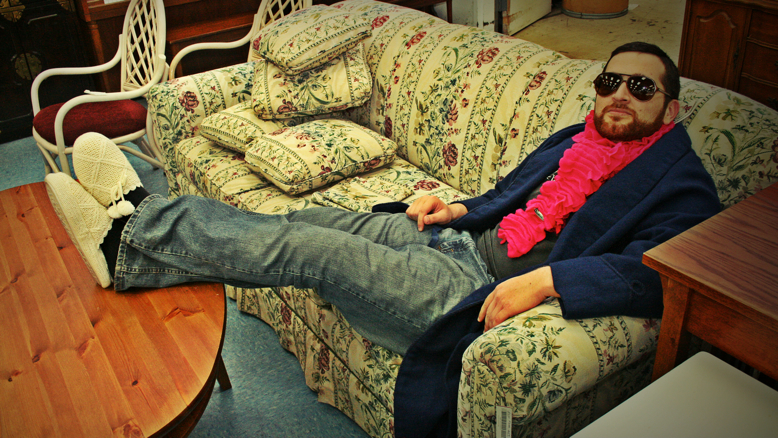All relationships come to an end. Parent-child relationships, sibling relationships, romantic relationships and friendships: all end at some point. Sometimes they end with death, sometimes they slowly peter out over time and distance, sometimes they end in a fierce, burning crash, and sometimes they come to a pointed, purposeful conclusion. A break-up. With the end of especially important relationships comes grief: a complex emotional process. Elisabeth Kubler-Ross has outlined five stages of the grieving process, which are typically listed in the order in which they’re “supposed” to happen, but really, these stages mix and mingle as much as cows caught in a tornado. Friend breakups may feel especially difficult because we don’t have a script for those. At the end of a romantic relationship, we have a whole potential process that can be lined out: lots of crying followed by throwing oneself into work or exercise or school, and then, finally, we get back on the dating horse, usually in the form of a rebound. But friend breakups don’t have a script—“friends forever” right? This can leave a person wondering how to deal with the loss of such an important relationship. I’ve had a few significant friend breakups in my life, and I’d like to share the process I’ve gone through, in hopes that it may help someone else out there dealing with something similar. My process pretty easily follows the Kubler-Ross model, but it starts before the actual end of the relationship.
Denial: Denial comes first for me. It’s when I’m feeling hurt in the relationship, but I keep excusing my friend’s behavior. “She didn’t mean to imply that I’m totally unimportant to her.” “He’s not trying to hurt me; that’s just how he is. I know he loves me.” Part of me knows I’m being treated like crap, but I don’t want to acknowledge it, because I don’t want to think that I’m the kind of person who lets her friends treat her like crap. Denial pairs well in a circular relationship with Anger.
Anger: “I can’t believe she blew off my birthday/ holiday/ graduation party to console her ex! They’re broken up, for f***’s sake!” “I freaking hate him. I hate him I hate him I hate him.” This emotion usually follows some break in the rules of our friendship (like, Rule #1: don’t treat your friends like crap), and is usually accompanied by me yelling into my pillow or journaling swear words fiercely in red pen. I tend to avoid people when I’m angry at them, because I know I run the risk of acting like one of the Plastics from Mean Girls. I take time to simmer down, and then when my friend and I sit down to hash out whatever it was that triggered my anger, I run into Bargaining.
Bargaining: “Okay, we talked about it, and it should feel ….resolved? But it doesn’t. Yes, it does—we talked about it.” In this stage, I argue with myself over whether or not our latest fight was productive. What frequently happens with my dysfunctional friendships here is that I express my concerns, the other person hears them out without actually listening, and I make the mistake of thinking everything’s going to get better, and that whatever disrespectful thing happened in the first place won’t happen again. Sometimes I even agree that I somehow caused my friend to treat me badly, and I think that if I just don’t do whatever my friend will treat me better. Denial-Anger-Bargaining make up the circle that usually has to repeat itself several times before I catch on to the pattern and realize the ugly truth: we have to break up.
Grief: This is where I finally acknowledge that the bad stuff isn’t changing, and may even be getting worse, and I finally call it quits. I meet up with my friend (ideally in neutral territory, but sometimes my place or theirs) and say, “Look, I’ve had these problems with our friendship. I don’t feel loved/ respected/ wanted/ cared for, and I think we need to break up.” Yes, I use the words “break up”. The friendships I have ended purposefully have been best friend relationships—people that at times felt like family. Friendships of lesser intensity usually just taper off of their own accord; it’s only the very intense, very unhealthy friendships I find require an actual break up. During the Grief stage, I experience a lot of sadness and a large sense of loss, but it usually runs parallel to Acceptance.
Acceptance: I know, underneath all the pain and sadness, that I made the right decision. I keep making and re-making a commitment to myself that I deserve to be treated with respect and kindness, and I know that by ending this friendship, I’m renewing that commitment. I know I’ll be better for it, and who knows, if we both change enough, maybe someday we might even be able to be friends again, but I don’t hold out for this possibility.
As I grieve and accept the end of the friendship, I usually circle back around to anger at least a few times. I think that’s normal, because I’m still hurting. Ultimately, though, I can come to a place of acceptance without the grief and anger, and that’s the final, healed stage for me.
Each of my ex-friends has reacted differently to my actions throughout these stages. The first one, before I had all the savvy communication skills I do now, was probably the messiest. I brought up that I felt like she treated me like I was not important, but I didn’t do it very well, which let her brush it off. Finally, when she said something blatantly homophobic (I’m queer), I got angry and left. When she tried calling me, I told her I was angry about her remarks and not in the mood to talk. She apologized, then tried to explain the logic behind her homophobia. (Folks, don’t do this.) She felt like I was overreacting, which in her eyes, I was. I was breaking off contact based on one little remark, from her perspective. But from mine, I’d been treated like I didn’t matter for two years, and now she had the nerve to straight-up tell me that I was less-than by default. She didn’t bother to ask if there was anything else that contributed to that fight, and I was too angry at having all of my attempts to bring up the “chopped-liver” feeling dismissed, so I told her not to contact me again. So far as I know, she’s still confused about why we broke up.
Another big friend break-up in my life happened four years and much introspection after the first one. He and I had been very close for about three years but in the last year of it, we’d started some pretty dysfunctional ways of interacting. He loved to party, but I hated when he was cross-faded, and as the night wore on, he would get annoying and I would get just plain mean. I told him at the end of one summer that I thought we were dysfunctional, and maybe we should break up. He agreed we weren’t in a good pattern, but he wasn’t going to be the one to leave. He told me if I had to leave for my own health, he would support me in that, even though he would miss me. A few months later, after an infamous night and the most violent my pacifist self has ever been, I called it quits. I officially hated who I was with him. We disagreed on some of the reasons behind the breakup but we agreed that we’d gotten to a bad place. We parted calmly, and I went home and cried. We run in the same circles still, so for several months after that night he was a little cold during our exchanges. Now, we interact like civilized divorced folks: not necessarily sweet, but nice enough.
Breaking up requires insight into the patterns of behavior expressed in a friendship. Frequently, when we’re doing something that’s bad for us, we ignore the signs that say it’s bad for us because we want to keep doing it; the same goes for friendships. I know that I always want to believe the best of people, that they (and I) can change and that we can work through whatever fight we had, but the truth of the matter is that if I am feeling mistreated on a regular basis, I owe it to myself to get out. Unhealthy patterns in one relationship don’t automatically equate to the people in them being bad—sometime’s the chemistry’s just gone sour. But both parties owe it to themselves to end a relationship that’s damaging someone. I am a human worthy of respect and love, and so are the friends with whom I’ve broken up.

Photo by Sara Slattery
